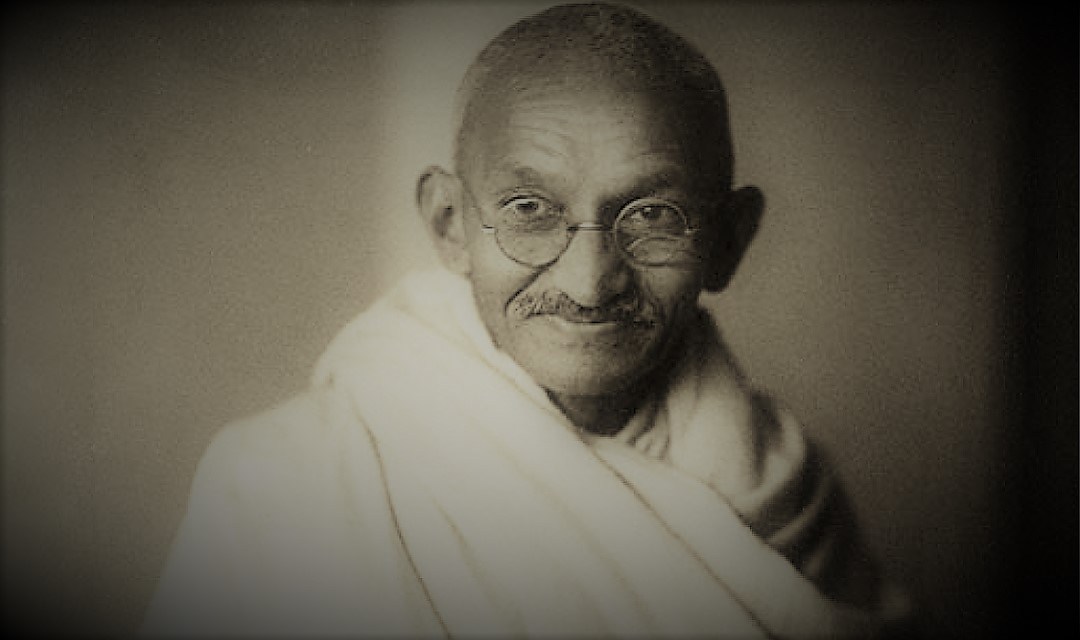This article first appeared in the in the Viewpoint column of the Christian Research Journal, volume 44, number 2 (2021).
Viewpoint articles address relevant contemporary issues in discernment and apologetics from a particular perspective that is usually not shared by all Christians, with the intended result that Christians’ thinking on that issue will be stimulated and enhanced (whether or not people end up agreeing with the author’s opinion).
For further information or to subscribe to the Christian Research Journal please click here.
Many Christians believe that there are good non-Christians. After all, if you actually know some good non-Christians, then there must be good non-Christians, right? That’s not what Jesus thought. Consider that Jesus wasn’t making small talk when He was called a “good teacher” but replied, “Why do you call me good? No one is good except God alone” (Mark 10:18).1 Now, it is true there are many apparently good non-Christians, but we must not confuse outward goodness with inward goodness. For Jesus, evil is always, first and foremost, a matter of the heart. And, by the way, both John Calvin and Jacobus Arminius agreed that apart from the work of the Holy Spirit, no one does anything good. Still, Christians wonder: Is it possible for a person to be a good person outside of a relationship with Christ?
To be clear, I’m not even remotely suggesting that Christians don’t sin. They do, often, and sometimes grievously. Of course Christians sin! I do. But true Christians — those who have been born again, those who have been filled with the Holy Spirit — are changed from within. They become “obedient from the heart” and “slaves of righteousness” (Rom. 6:17–18). In other words, the Christian’s inner person wants to do God’s will even if sometimes they choose not to. So, let’s look at human “goodness” apart from Christ.
Why Do Bad People Do Good Things? I’ve asked my students, “Why do gang members stop at red lights?” A student once responded meekly, “Because they don’t want to get a ticket?” That might be part of it, but isn’t there a bigger, more compelling reason? Isn’t the real reason gang members stop at red lights because they don’t want to be hit by an 18-wheeler and turned into red asphalt? Sure it is. Gang members stop at red lights in self-interest, not moral goodness.
Jesus said that those who lust commit adultery in their hearts (Matt. 5:28). Now consider a scenario in which a man and a woman both work at the same company and they are both married to people outside that company. And in time, he flirts with her, and she flirts with him. Soon they have sexual fantasies about each other, and both begin to think that perhaps the other person would be willing to have sex with them. If that’s the case, why don’t they go all the way and do it?
Well, it’s not because they have decided to cherish only their spouse, right? So why don’t they “do it”? Isn’t it because they’re afraid of pregnancy? Or that one of them might bring home an STD. (“Oh, that’s new honey, where did you get that?”) Or that if their adultery became public they might lose their jobs, or families, or reputations? Or all the above?
Whatever the case, the reason they aren’t “doing it” isn’t because of moral goodness — it’s because of self-interest. And when these people finally “do it,” it’s because they’ve decided that they have workarounds for all the potential problems — “We’ll use a condom,” “Our spouses are away,” “She/he will never tell,” and so on.
In 1 John 3:15 it says, “Everyone who hates his brother is a murderer.” In other words, if you hate someone, you are a murderer even if you don’t actually kill that person. Why don’t you kill the person you hate? It’s not because you care for the person, right? After all, we’ve already established you hate them. Then, isn’t it about self-interest? “I don’t want to go to prison!” Like adulterers, haters actually do the deed when they become convinced that they can get away with it.
So, how many of us got out of junior high without being adulterous murderers? I didn’t. I hated kids, and kids hated me. And I don’t think I need to explain to you the adulterous thoughts in a junior high school boy’s mind. Thus, we live in a society of adulterous murderers who think they are good because they aren’t acting out their sinful desires even though it’s due to self-interest. With these truths in view, perhaps Scripture makes more sense when it says, “There is no one who does good, not even one. Their throats are open graves….Their mouths are full of cursing….Their feet are swift to shed blood” (Rom. 3:12–15 NIV).
Was Gandhi a Good Non-Christian? Many bring up specific examples of “good” non-Christians: “But what about grandma? She isn’t a Christian, but she volunteers at the community center, and she bakes cookies for the kids on her street.” But that doesn’t make her a good person — it only makes her a nice person. After all, we all know there are KKK grandmas who help seniors and bake cookies for the white kids in their neighborhoods. Sure there are! That doesn’t make them good. Gandhi is most often cited as an example of the “good” non-Christian. But Gandhi wasn’t good. Gandhi may have done many good things, but every night he went to bed naked with his two nieces, other girls, and even married women.2
Lending money or possessions, smiling at neighbors, or baking cookies doesn’t make one good. One horrifying realization about murderers is that they can otherwise be nice. Adolf Eichmann, the administrator at Auschwitz, was a family man who never killed anyone himself.3 Pol Pot, who orchestrated the killing fields of Cambodia, had a warm smile.4 When serial killers are caught, their neighbors are often surprised and testify that the killers were nice, even helpful.5 Jesus said, “If you do good to those who do good to you, what benefit is that to you? For even sinners do the same” (Luke 6:33).
Many misunderstand the Pharisees: they were the outwardly good people of Jesus’ day. But Jesus called them “blind guides,” “whitewashed tombs,” and “vipers” (Matt. 23:16, 27, 33). Outwardly they looked good, but inwardly they were “full of dead people’s bones” (23:27). And, contrary to popular belief, Jesus never criticized them for condemning sin; He criticized them for doing what they condemned — the leaven of the Pharisees was hypocrisy (Luke 12:1). In other words, the chief characteristic of the Pharisees was that they didn’t live what they taught. Similarly, many in today’s churches are regular attendees, givers, and greeters, but they unrepentantly harbor hate and lust in their hearts.
Why Non-Christians Do Good? I’m often asked about heroic acts that do appear to be examples of human goodness, but, again, doing one good act or even many good acts doesn’t make one a good person. It just makes one the doer of some good acts. Ernest Becker, in his Pulitzer Prize-winning book The Denial of Death, argues successfully that man’s overarching fear, the mainspring of his existence, is that he knows he is going to die. To cope with this, as the author of the foreword sums it up, man tries to “transcend death by participating in something of lasting worth. We achieve ersatz immortality by sacrificing ourselves to conquer an empire, to build a temple, to write a book, to establish a family, to accumulate a fortune, to further progress and prosperity, to create an information society and a global free market.”6
Becker writes that a fellow who may “throw himself on a grenade to save his comrades” must “feel and believe what he is doing is truly heroic, timeless, and supremely meaningful.” This striving for heroics in “passionate people” is “a screaming for glory as uncritical and reflexive as the howling of a dog.”7 But for most people — for the more “passive masses” — this heroism is “disguised as they humbly and complainingly follow out the roles that society provides for their heroics and try to earn their promotions within the system” that allows them to “stick out, but ever so little and so safely.”8
Something is desperately wrong with humankind, and the best explanation is that we are the sexual reproductions of Adam and Eve — we are all born with a corrupt nature. Paul writes, “You were dead in the trespasses and sins in which you once walked, following the course of this world, following the prince of the power of the air, the spirit that is now at work in the sons of disobedience — among whom we all once lived in the passions of our flesh, carrying out the desires of the body and the mind, and were by nature children of wrath, like the rest of mankind” (Eph. 2:1–3). Notice that outside of Christ, Satan is at work within you, and you are “by nature children of wrath.” But the next verse tells us, “Because of his great love for us, God, who is rich in mercy, made us alive with Christ even when we were dead in transgressions — it is by grace you have been saved” (Eph. 2:4 NIV). Indeed, you can be born again into a new family. Trust in Jesus’ work on the cross and repent of your sins. You’ll be saved and then you’ll become obedient from the heart.
Saying there are no good non-Christians offends people. Indeed, a student once sheepishly asked me, “Is this a message we really want to get out?” I replied, “Jesus said that the world ‘hates me because I testify that its works are evil’” (John 7:7 NIV). So WWJD? Isn’t this another way that we should be more like Jesus?—Clay Jones
Clay Jones is visiting scholar at Talbot School of Theology, author of Why Does God Allow Evil?: Compelling Answers for Life’s Toughest Questions (Harvest House, 2017), Immortal: How the Fear of Death Drives Us and What We Can Do About It (Harvest House, 2020), and blogs at www.clayjones.net.
NOTES
- Unless noted otherwise, Scripture quotations are from ESV.
- Jad Adams, “Thrill of the Chaste: The Truth about Gandhi’s Sex Life,” The Independent, April 7, 2010, http://www.independent.co.uk/arts-entertainment/books/features/thrill-ofthe-chaste-the-truth-about-gandhis-sex-life-1937411.html.
- See Hannah Arndt, Eichmann in Jerusalem: A Report on the Banality of Evil (New York: Penguin, 1994).
- David P. Chandler, Brother Number One: A Political Biography of Pol Pot (Boulder, CO:Westview, 1992), 5.
- For example, see Monica Hesse, “‘Dangerous Instincts’: FBI Profiler Explains the Dangers of That ‘Nice’ Neighbor,” Washington Post, October 24, 2011, https://www.washingtonpost.com/lifestyle/style/dangerous-instincts-fbi-profiler-explains-thedangers-of-that-nice-neighbor/2011/10/17/gIQAkvNCDM_story.html.
- Sam Keen, “Foreword,” in Ernest Becker, The Denial of Death (New York: Free Press, 1973), xiii.
- Becker, The Denial of Death, 6.
- Becker, The Denial of Death, 6.









